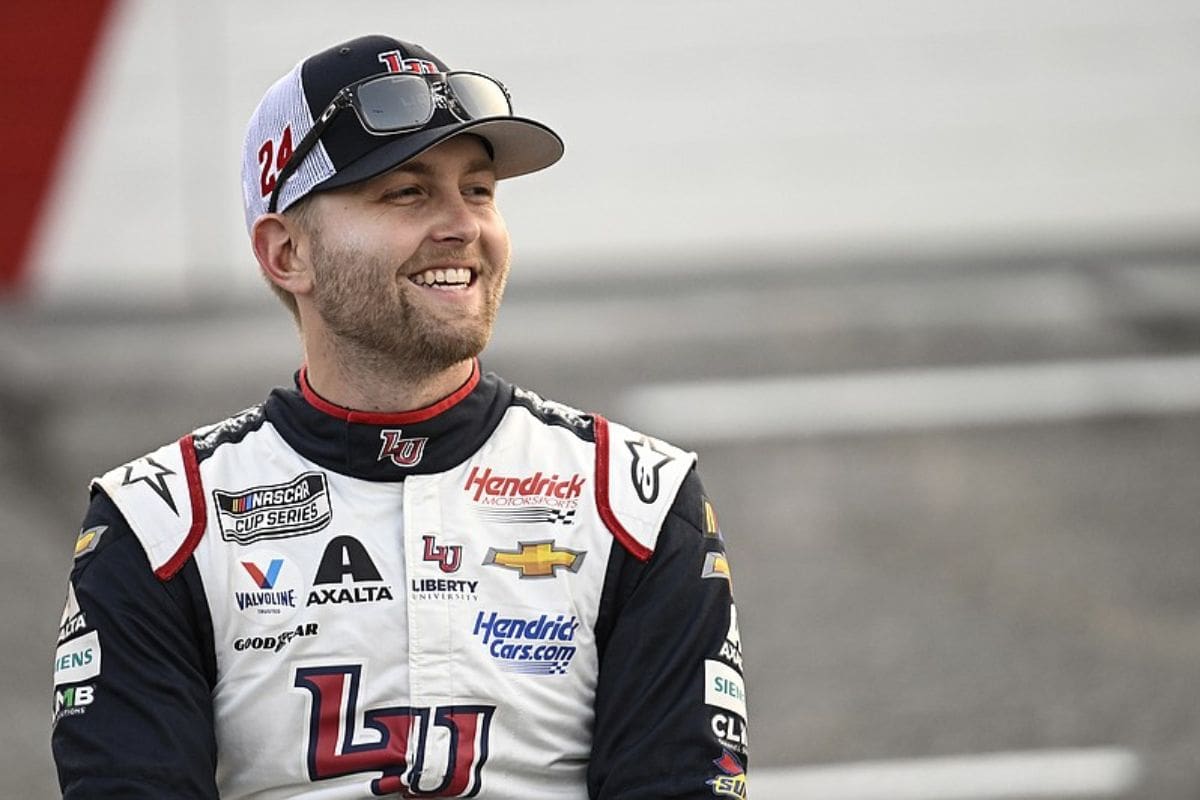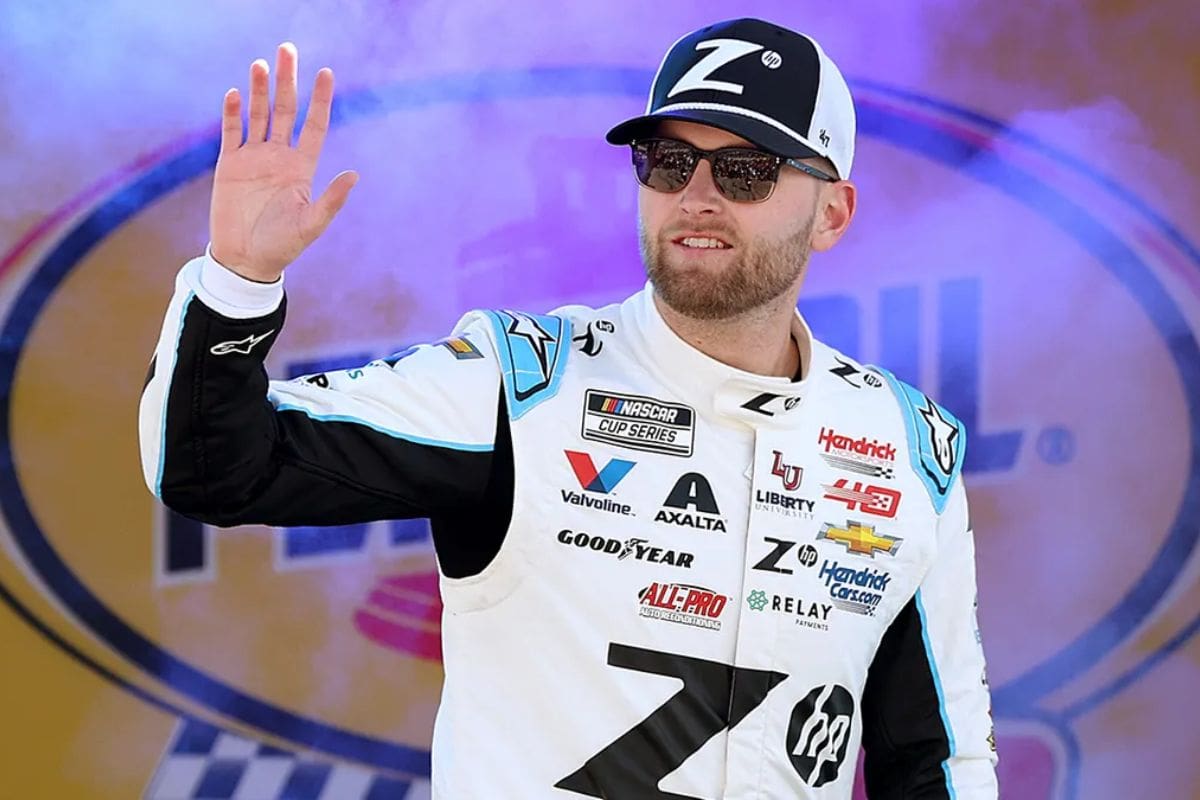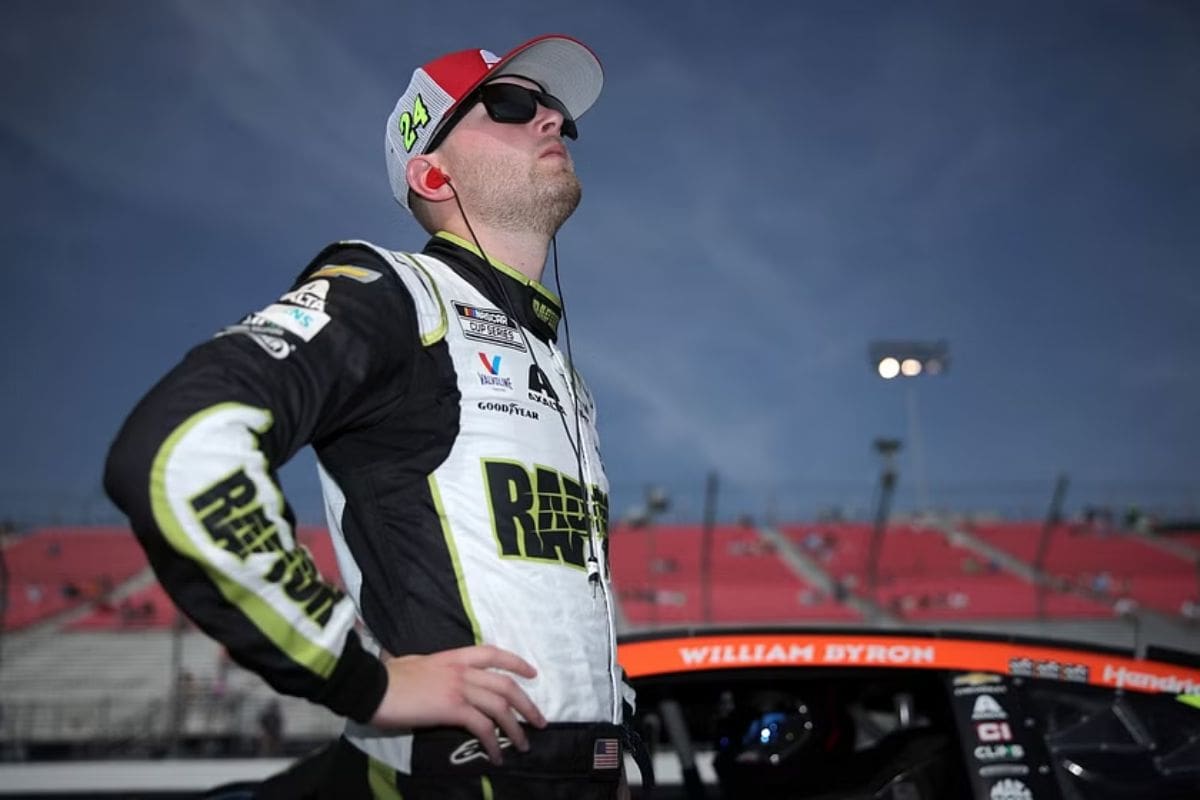William Byron Exposes NASCAR Points System: William Byron’s recent critique of NASCAR’s points system has sparked a conversation that goes beyond mere race standings, looking into the strategic depths that define the motorsports’ competitive framework. His analysis not only reveals the complex structure governing driver rankings but also highlights the significant challenges athletes face in their pursuit of the championship. Byron’s perspective prompts a broader discussion on the balance between sporting integrity and entertainment value, pushing stakeholders to reconsider the consequences of the current points allocation.
Key Takeaways
- William Byron credits the current points system for elevating NASCAR’s competitive intensity and strategic depth.
- Byron’s success highlights the system’s effectiveness in rewarding consistency and performance throughout the season.
- He acknowledges the high-stress environment created by the points system, testing drivers’ resilience and mental toughness.
- The playoff points feature, introduced in 2017, is pivotal in Byron’s strategy for securing race victories and advancing in the playoffs.
- Byron’s perspective sheds light on the strategic complexities drivers navigate, owing to the evolved points system.
William Byron Dominates NASCAR 2024 Season
In the 2024 NASCAR season, with three race victories under his belt, including an important win at COTA that has firmly positioned him in the playoff race. His remarkable performance this season is not just a proof of his driving skills but also highlights the strategic planning of his team.
Byron’s victory at COTA, in particular, was a masterclass in precision driving and strategic pit stops. It highlighted his ability to conquer road courses, which are often considered the great equalizers due to their demanding nature. Furthermore, Byron’s early success in the season has strategic implications for the playoffs. With three wins, he has accumulated a significant number of playoff points, giving him a considerable advantage in the postseason.

Evolution of NASCAR’s Points System
Understanding William Byron’s early successes in the 2024 NASCAR season offers a perfect opportunity to explore the evolution of NASCAR’s points system, an essential factor in shaping the competitive landscape of the sport.
Since its inception in 1949, the structure of awarding points in NASCAR has witnessed substantial transformations taking the count to 15. The current points system, established in 2017, introduced playoff points, adding strategy to the championship race and greatly impacting how drivers and teams approach the season. The new points system introduced in 2017 allowed the driver to award them with 5 “playoff points” in each with in the first 26 races of the series.
This evolution from a simple, win-based points allocation to a complex system highlights NASCAR’s response to the evolving dynamics of motorsports racing and its audience. Playoff points incentivize performance across the season rather than just end-season rankings, enabling drivers to secure advantages before the playoff series begins.
William Byron’s Perspective on the Points System
Martinsville victor William Byron, emphasizing the NASCAR points system, shows its role in highlighting drama and the challenges faced by competitors throughout the racing season. Byron’s perspective sheds light on the subtle balance the points system strikes between fostering competitive intensity and ensuring that every race, every lap, indeed every turn, can have a substantial impact on a driver’s season. He further goes on the mention the fact how it is different for a fan than to the driver himself.
“It’s just the format that I’ve always raced in. So I don’t know any different. That’s how we’ve always done it. The first year I was in Trucks, they didn’t have the playoff points and then a lot of people said they created the playoff points because of us.”-(byron)
“I think the format and the nature of it is very intense, very stressful. But I think that’s what you want in sports, really, is to have something that really challenges everyone. So I feel like the way it is, it brings out those dramatic moments.”-(byron)
“It really is all about Phoenix. So you’ve just got to prepare that way and know that’s the case, and try to bring your best stuff.” – (byron)
Moreover, Byron’s commentary emphasizes the emotional and psychological toll the points system can exact on competitors. The relentless challenge to perform, aggravated by the looming threat of losing significant points due to a single misstep, creates a high-stress environment that demands not only physical skills but mental resilience.
Brian France’s Vision for NASCAR’s Playoff Format
Building on the insights into the competitive intensity fostered by NASCAR’s points system, we now explore Brian France’s vision for the playoff format, aimed at heightening the stakes of every race and stage through an elimination-style competition.
In 2004, the “Chase” system allowed only the top ten points earners to compete for the Championship in the last ten races. This number increased to 12 in 2007 and eventually to 16 in 2014, establishing the current format of a four-round, 16-driver, 10-race tournament-style Playoffs. Brian France, aligning with Byron’s ideas, aimed for a challenging system.
The playoff system was structured to create a challenging and competitive environment, where the urgency to perform is paramount in every lap and stage of the race. This format not only emphasizes the importance of consistent high performance but also introduces a dynamic where strategic thinking and resilience become key components of success.
News in Brief
The examination of William Byron’s critique and experiences within NASCAR’s evolving points system emphasizes the complexities and strategic depth inherent in professional motorsports competition.
Byron’s insights provide a critical lens through which the implications of NASCAR’s points system on driver performance and championship outcomes can be understood.
This analysis highlights the significant impact of administrative decisions on the sport’s competitive landscape, suggesting a need for ongoing evaluation and potential refinement to guarantee the system aligns with the principles of fairness and competitive integrity.
Our Reader’s Queries
Q. What is the point system for NASCAR trucks?
A. In a typical race, contenders battle it out over three stages, each carrying significant championship results. As the checkered flag drops after the final stage, the victor snags a hefty 40 points, while the runner-up claims 35, and the third-place finisher nabs 34. The point allocation follows a sliding scale from there, gradually decreasing down to one point for those crossing the line in 36th to 40th positions.
Q. Has William Byron ever won a NASCAR race?
A. Upon climbing into the driver’s seat, he made it crystal clear: “It’s my own ride.” Byron’s journey to victory lane began in 2020, clinching his inaugural win after 98 starts. The momentum carried into 2021 with another victory, followed by two more victories in 2022. Last year, he dominated the field with an impressive six wins, topping the charts in the Cup series.
Q. What is the point system for NASCAR 2024?
A. As the checkered flag falls, the points distribution unfolds, with each position from 2nd to the tail end earning points in single-point increments. The victor, however, notches additional bonus points. The spectrum spans from 35 points for the runner-up down to a solitary point for those in the 36th to 40th spots. Securing first place garners a grand total of 40 points, including 36 for the win and an extra 4 bonus points.
Q. How do NASCAR owner points work?
A. A driver’s points tally, inclusive of both race performance and stage points, mirrors identically in the driver’s and owner’s standings. While a driver’s standings reflect individual performance irrespective of the car, the owner’s standings are exclusively linked to the car number, delineating the team’s overall performance.
ALSO READ: William Byron’s Tactical Move: Outsmarting NASCAR’s Restart Drama!


